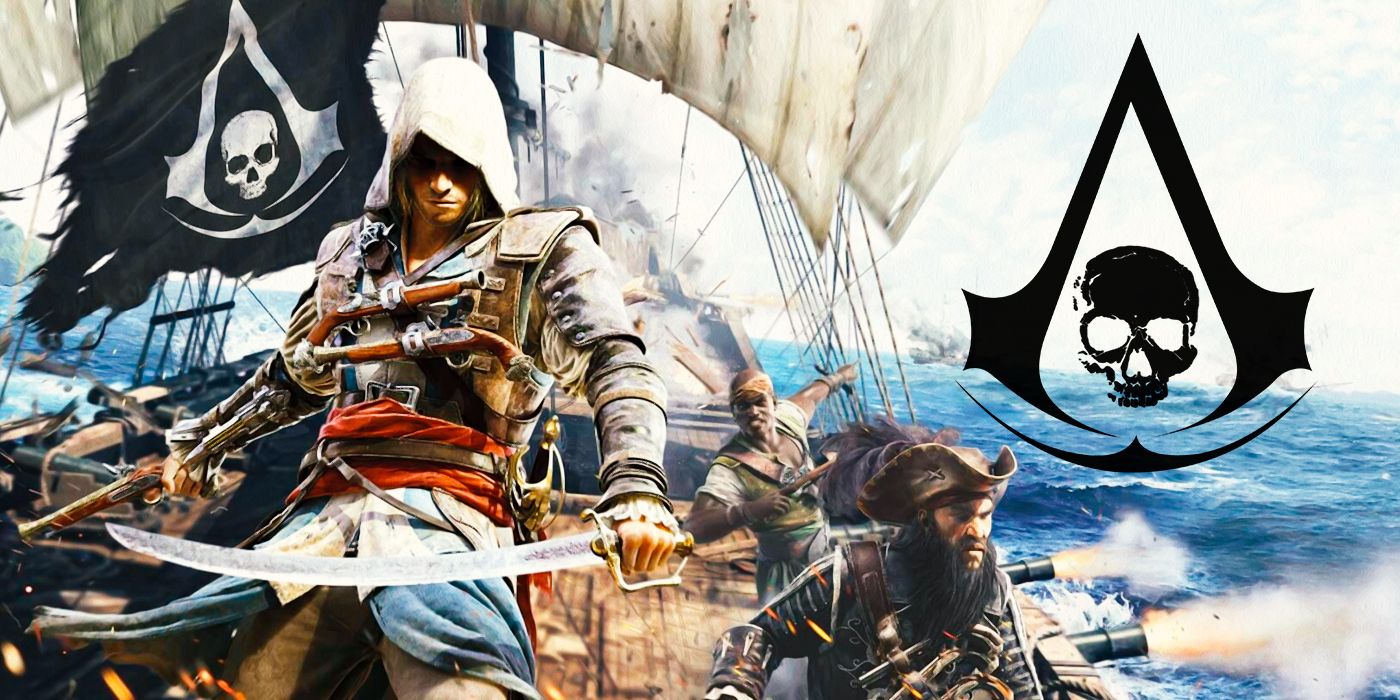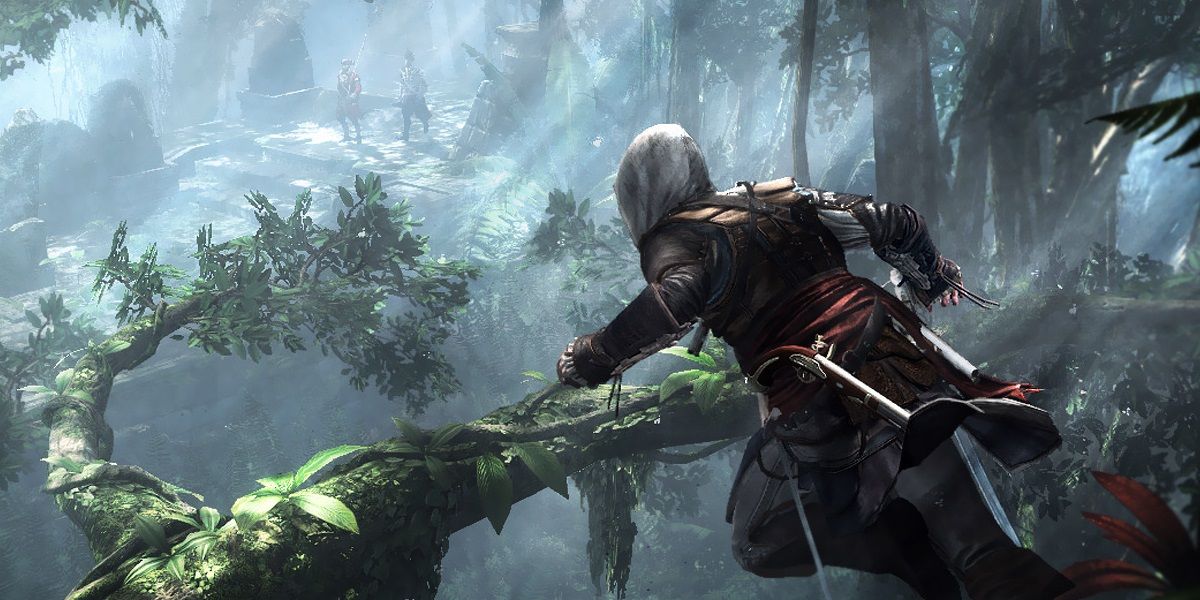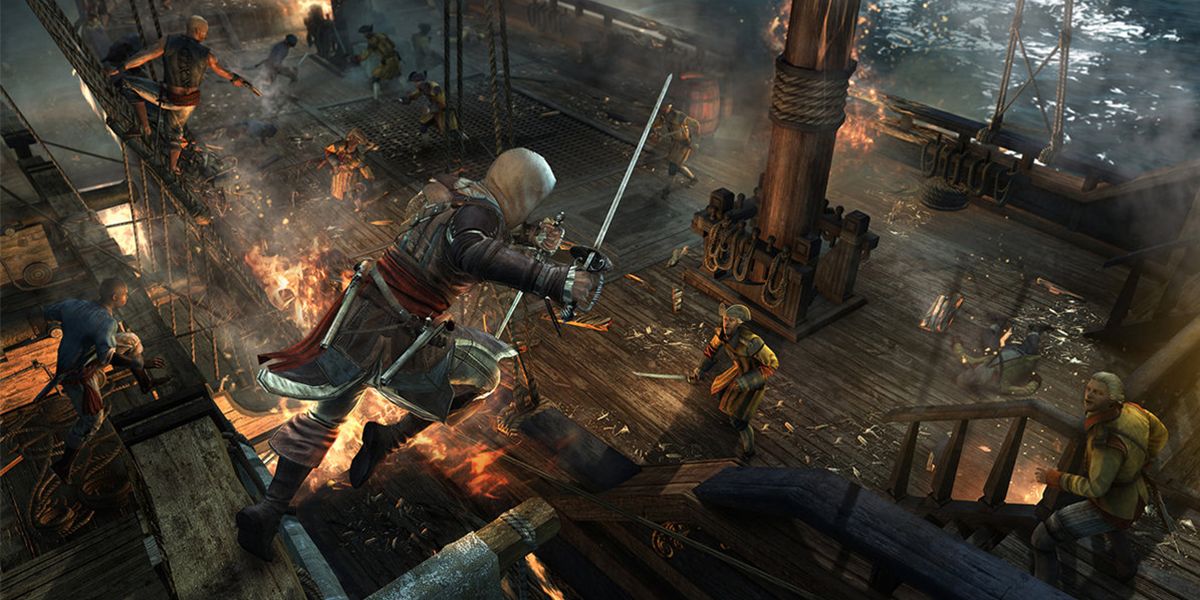Since its debut back in 2007, Assassin's Creed has become a phenomenal success, which means citing any one game as the best is bound to cause heated debate. Some entries have proved divisive, others disappointing, but there is one that stands out across the multitude of titles for being unlike any other Assassin's Creed before or since: Black Flag.
In many ways, Black Flag is the standout purely because it took the franchise's established gameplay model and reformulated it into something original. Previous Assassin's Creed games focussed heavily on the overarching Assassins narrative, always linking the story back to the Animus, the Templars and the struggle for the control over the Pieces of Eden. The original Assassin's Creed established the basic template for future games, with the Ezio trilogy expanding the story and gameplay.
At the time, there was a sense that the Assassin's Creed franchise was getting stale. The Ezio trilogy is exceptional, but even then, there were hints of things becoming repetitious, especially by the time 2011's Revelations released. When Assassin's Creed III shifted the focus to the American Revolutionary War, critics and fans regarded it as one of the weakest entries, failing to evolve gameplay and suffering from an underdeveloped protagonist.
These were issues that Black Flag rectified. Initially, hardly anything gave the impression of it being an Assassin's Creed game at all, the action now focused on a rip-roaring pirate yarn set on the balmy seas of the Caribbean during the 18th century. Out went the old reliance on land exploration of a broadly uniform location and in came a nebulous network of towns, settlements and islands to explore via The Jackdaw, protagonist Edward Kenway's iconic brig.
This is one areas in which Black Flag excels. By relocating to the sun-soaked shores of the Caribbean, the game feels like a complete departure from the series' past. The varied settlements keep things fresh and varied in contrast to the claustrophobic locales of previous games, while the focus on ship-based combat and travel is well-executed. Sailing the crystal blue ocean while the sea sweeps around you and your crew as they sing authentic shanties is an absolute pleasure.
Though Black Flag's combat remained largely unchanged, it's an extremely accessible system that allows players to utilize muskets, dual-wielded swords and pistols as protagonist Edward Kenway cuts his way through hordes of enemies at will. The combat is at its best when it's contextual, be it in storming a fort or boarding an enemy vessel and then dispatching an enemy captain as cannons roar and muskets flash. The series' core stealth missions, meanwhile, are reinvigorated by this new, exotic setting, levels such as "Sugarcane and its Yields" ending up exciting and well-designed as the player sneaks around a plantation trying to sabotage the British.
Black Flag is simply fun at its core. Other installments have boasted more consequential narratives, but Black Flag's focus is always on the experience itself, on telling its own story and crafting its own characters in the process. With a cast featuring Calico Jack, Anne Bonny and Blackbeard himself, the game's story, characters and mechanics complement one another perfectly, moving things along at a roaring pace as Edward roams the seas seeking fortune and liberty in the Caribbean. Sequences such as "The Observatory," where Edward fights natives in abandoned jungle ruins, and "Do Not Go Gently," which sees Edward and Blackbeard ambushed by the British navy, are brilliant additions to the Assassin's Creed canon.
Still, Black Flag isn't perfect. The concessions made to the overarching Assassins storyline do sometimes feel clunky and strange in a game that is literally straining to be freed from its own history. This also means any return to the Animus frustrates the pace of the main narrative. Nobody could claim, either, that Edward Kenway's adventures are the weightiest the series has to offer, a turnoff for some who prefer their stories with a little more bite.
However, the overall game is still an excellent achievement that Ubisoft has yet to match. The Assassin's Creed series is often weighed down by its massive past and labyrinthine story, always trying to squeeze the Assassins or the Templars into its variable historical settings. While Black Flag certainly made concessions to its past, it's still so enjoyable because of how little regard it has for its history. Black Flag isn't designed solely to satisfy returning players, but instead to elicit maximum player enjoyment from its rich setting and colorful cast. Black Flag liberates itself from its past, and thus stands as arguably the best Assassin's Creed game yet.



